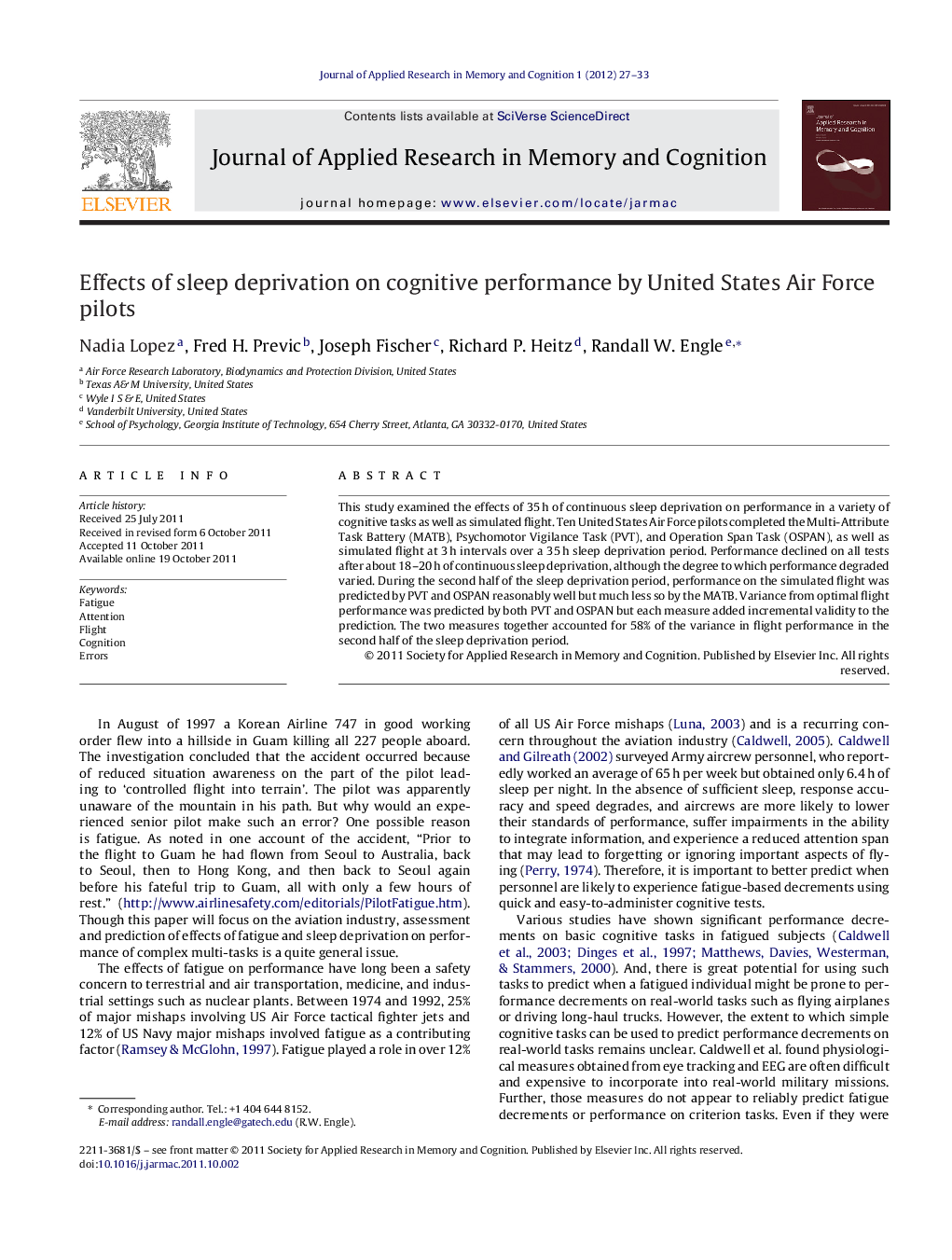| Article ID | Journal | Published Year | Pages | File Type |
|---|---|---|---|---|
| 881728 | Journal of Applied Research in Memory and Cognition | 2012 | 7 Pages |
This study examined the effects of 35 h of continuous sleep deprivation on performance in a variety of cognitive tasks as well as simulated flight. Ten United States Air Force pilots completed the Multi-Attribute Task Battery (MATB), Psychomotor Vigilance Task (PVT), and Operation Span Task (OSPAN), as well as simulated flight at 3 h intervals over a 35 h sleep deprivation period. Performance declined on all tests after about 18–20 h of continuous sleep deprivation, although the degree to which performance degraded varied. During the second half of the sleep deprivation period, performance on the simulated flight was predicted by PVT and OSPAN reasonably well but much less so by the MATB. Variance from optimal flight performance was predicted by both PVT and OSPAN but each measure added incremental validity to the prediction. The two measures together accounted for 58% of the variance in flight performance in the second half of the sleep deprivation period.
► Ten experienced USAF pilots were deprived of sleep for 35 h. ► They performed cognitive tests and a flight simulation every 3 h. ► Performance on all tests declined in the last half of the deprivation period. ► PVT and OSPAN accounted for 58% of the variance in flight performance. ► These measures have potential for diagnosing fatigue.
